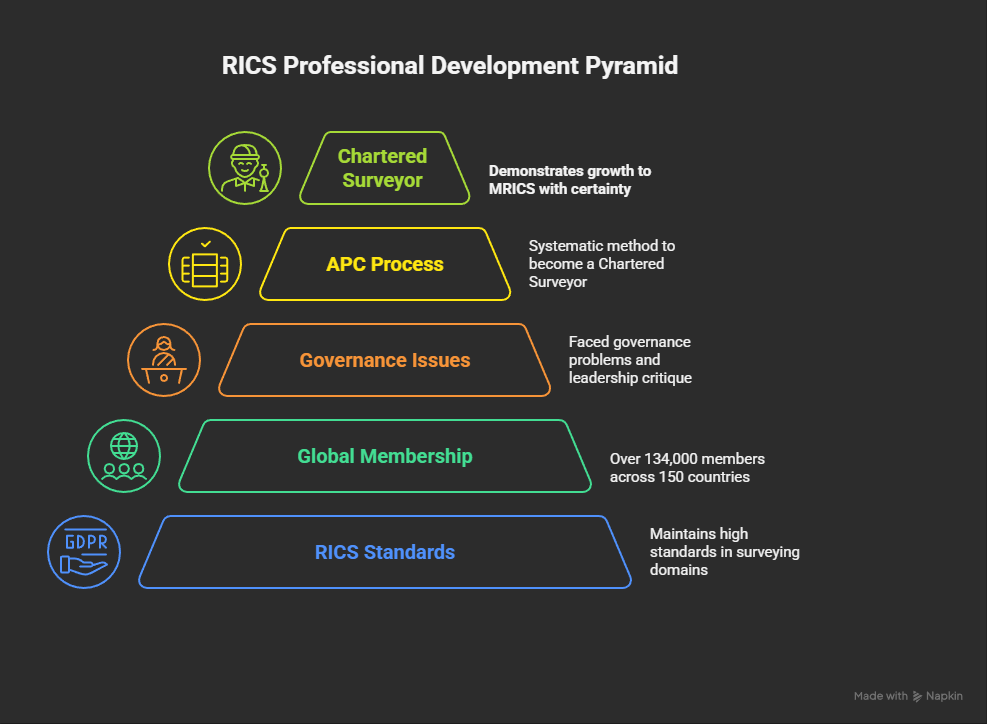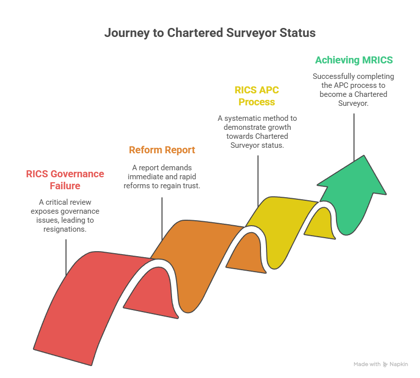
The Royal Institution of Chartered Surveyors (RICS) is recognized globally as one of the most respected professional bodies in the property, construction, and land sectors. Its standards, qualifications, and ethics framework play a key role in shaping the reputation and credibility of industry professionals. Two essential components in this journey toward professional excellence are the RICS Assessment and RICS Membership. These elements go hand-in-hand, forming a pathway that not only evaluates the competence of an individual but also supports their long-term career growth. This article provides a detailed overview of both, explaining their importance, structure, and impact on professional development.
Understanding the RICS Assessment
The RICS Assessment is a structured process designed to evaluate whether a candidate meets the professional standards required for membership. RICS uses different assessment routes depending on the candidate’s experience level, qualifications, and career background. Some of the most common assessment pathways include:
Assessment of Professional Competence (APC) – the standard route for most candidates with surveying or related degrees.
Senior Professional Route – designed for individuals with significant experience in a senior position.
Specialist Assessment – for candidates with expertise in a highly specialized field.
Associate Assessment (AssocRICS) – for those beginning their professional journey.
Regardless of the route, the core purpose of the RICS Assessment remains the same: to ensure candidates demonstrate the required technical skills, professional judgement, and ethical understanding expected of a RICS professional. The assessment often includes written submissions, case studies, a record of experience, and a final interview conducted by trained RICS assessors.
Key Skills Evaluated During the Assessment
The RICS Assessment focuses on a wide range of competencies that reflect the expectations of global surveying practice. These competencies may vary depending on the chosen pathway or area of specialization, but they generally include:
Technical Competence: This involves showcasing knowledge specific to the candidate’s chosen field—such as valuation, quantity surveying, project management, land surveying, or real estate management.
Professionalism and Ethics: Candidates must demonstrate an understanding of the RICS Rules of Conduct, ethical decision-making, and their responsibility to clients, the public, and the profession.
Practical Experience: RICS values hands-on experience, which means candidates need to provide evidence of real projects, decision-making roles, and professional challenges they have managed.
Communication Skills: Clear written and verbal communication is essential in the industry. The final interview tests a candidate’s ability to articulate their knowledge and experience under pressure.
The combination of these competencies ensures that individuals who pass the RICS Assessment are ready to practice responsibly, confidently, and professionally in a competitive global environment.
Importance of the RICS Assessment
The assessment is not merely a formality. It is a validation process that brings several important benefits:
Quality Assurance: Clients and employers gain confidence knowing that a RICS-qualified professional has been rigorously evaluated.
Global Standards: As RICS operates internationally, its assessment ensures consistency and reliability across different countries and markets.
Career Development: The assessment requires candidates to reflect on their professional journey, which naturally supports learning, growth, and self-improvement.
Ethical Accountability: By emphasizing ethics, the assessment promotes trustworthy and responsible professional behavior.
Ultimately, passing the RICS Assessment is a significant professional milestone that opens the door to RICS Membership—one of the most recognized credentials in the industry.
RICS Membership: A Gateway to Global Professional Recognition
Once a candidate successfully completes their assessment, they are awarded RICS Membership. This membership represents more than just a qualification—it reflects a commitment to excellence, integrity, and industry leadership. RICS Membership is available at different levels, the most notable being:
Associate RICS (AssocRICS) – an entry-level designation.
Member RICS (MRICS) – the most common and internationally recognized professional status.
Fellow RICS (FRICS) – a senior level of recognition awarded to professionals with outstanding achievements and leadership.
Each title signifies a different stage of professional development but carries the same core values of professionalism, ethical practice, and expertise.
Benefits of RICS Membership
RICS Membership offers numerous advantages that support both personal and professional growth:
1. Global Recognition and Credibility
RICS is known worldwide, and its Membership signals that an individual has met rigorous professional standards. This can significantly enhance employment opportunities, client trust, and international career mobility.
2. Professional Network
Members join a global community of surveyors, property professionals, and industry leaders. This network provides opportunities for collaboration, mentorship, and knowledge exchange.
3. Continuous Professional Development (CPD)
RICS encourages lifelong learning by requiring members to complete CPD activities. This ensures that they remain up-to-date with industry changes, new technologies, regulations, and best practices.
4. Access to Resources and Tools
Members gain access to exclusive RICS publications, research papers, industry reports, and professional guidance that support informed decision-making and high-quality service delivery.
5. Enhanced Career Opportunities
Many employers prefer or even require RICS-qualified professionals, especially for senior roles, government positions, or international projects. Membership increases employability and earning potential.
6. Ethical Assurance
By following the RICS Rules of Conduct, members commit to integrity and transparency, which strengthens their reputation and professional relationships.
How the RICS Assessment Leads to Membership
The relationship between the RICS Assessment and RICS Membership is straightforward: the assessment is the gateway to becoming a recognized member. It ensures that the standards of the profession are maintained and only competent, ethical professionals are admitted.
The journey typically follows these steps:
Eligibility Check and Enrollment
The candidate chooses the appropriate pathway based on their qualifications and experience.
Preparation of Portfolio and Evidence
They compile case studies, experience logs, and written submissions.
Final Assessment or Interview
The candidate meets with assessors who evaluate their competence and readiness.
Membership Award
Upon passing, the candidate receives their membership designation—AssocRICS, MRICS, or FRICS.
This structured approach ensures transparency, fairness, and consistency across all applicants.
Conclusion
The RICS Assessment and RICS Membership together form a complete professional development journey for individuals in the land, property, and construction sectors. While the assessment rigorously evaluates a candidate’s skills, experience, and ethics, the membership formally acknowledges their competence and opens doors to new opportunities. With its global reputation, strong ethical values, and commitment to excellence, RICS stands as a symbol of trust and professionalism worldwide. For anyone seeking to build a reputable and successful career in the surveying industry, achieving RICS Membership through its assessment is one of the most valuable steps they can take.














